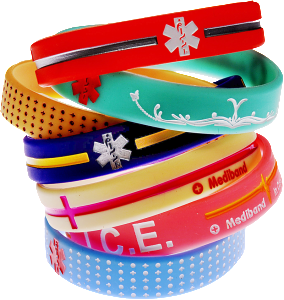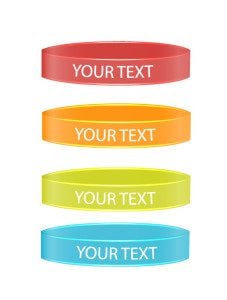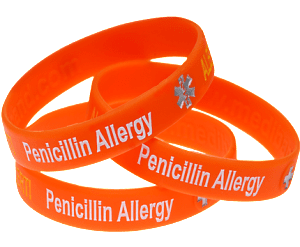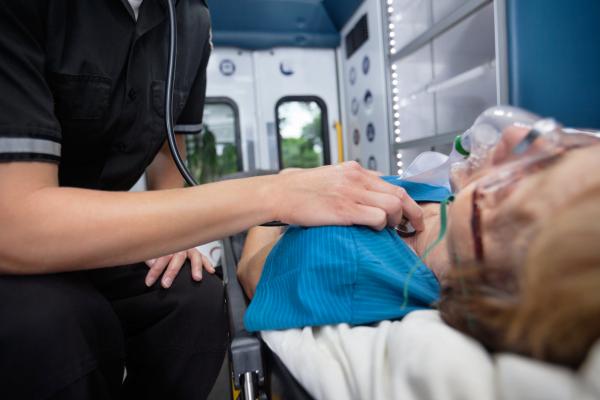Medical Alert Bracelets
-
4 Ways to Make Medical Alert ID Bracelets for Kids Fun!
 Medical alert bracelets can save your life by passing on valuable information to doctors and medics in the event of an emergency. Unfortunately, as with most things that have health benefits, kids often find them clunky and annoying, and are reluctant to wear them. So how can you encourage your child to wear his or her ID bracelet?
The key is to try to make wearing the bracelet fun and to engage the child’s imagination. This is easier said than done, but it can make it much easier to persuade your child that wearing their bracelet is a good idea.
Customise id bracelets for kids
Kids love things that look nice. Kids love things that look cool. Kids don’t love things that look clunky and perfunctory and make other kids laugh at them in the playground. Fortunately, there are hundreds of types id bracelets for kids on the market, many of them specifically designed to be enjoyable and fun to wear for kids. Continue reading →
Medical alert bracelets can save your life by passing on valuable information to doctors and medics in the event of an emergency. Unfortunately, as with most things that have health benefits, kids often find them clunky and annoying, and are reluctant to wear them. So how can you encourage your child to wear his or her ID bracelet?
The key is to try to make wearing the bracelet fun and to engage the child’s imagination. This is easier said than done, but it can make it much easier to persuade your child that wearing their bracelet is a good idea.
Customise id bracelets for kids
Kids love things that look nice. Kids love things that look cool. Kids don’t love things that look clunky and perfunctory and make other kids laugh at them in the playground. Fortunately, there are hundreds of types id bracelets for kids on the market, many of them specifically designed to be enjoyable and fun to wear for kids. Continue reading → -
Epilepsy Bracelets: For Your Safety & Protection
 Do you or someone you love suffer from epilepsy? Epilepsy is a neurological condition which causes victims to suffer from seizures. While the seizures vary in scope and severity, the disorder can quickly become a medical emergency without proper identification and response.
Treatment options for epilepsy including medication have made the disorder much more manageable for those suffering from it. However, do you have all your safeguards in place if an emergency were to occur?
One of the major problems related to this and many other disorders is safeguarding yourself when you’re incapacitated. How can you tell someone you have epilepsy if you’re unconscious or unable to speak? That’s why you need to plan ahead and set up safeguards to alert those around you about your condition.
In most cases, you can wear an epilepsy bracelet Continue reading →
Do you or someone you love suffer from epilepsy? Epilepsy is a neurological condition which causes victims to suffer from seizures. While the seizures vary in scope and severity, the disorder can quickly become a medical emergency without proper identification and response.
Treatment options for epilepsy including medication have made the disorder much more manageable for those suffering from it. However, do you have all your safeguards in place if an emergency were to occur?
One of the major problems related to this and many other disorders is safeguarding yourself when you’re incapacitated. How can you tell someone you have epilepsy if you’re unconscious or unable to speak? That’s why you need to plan ahead and set up safeguards to alert those around you about your condition.
In most cases, you can wear an epilepsy bracelet Continue reading → -
Medical Alert Bracelets Help First Responders
 Millions of people receive emergency medical assistance from first responders in Australia each year. While this is most commonly thought of in relation to a vehicle crash, other factors such as injuries, respiratory, and heart conditions are the most common reasons why individuals require emergency medical assistance and transportation to the hospital. The care that they receive from the first responders while they are en route to the hospital is directly related to the ability of those people to receive accurate information about the health history of the individual. One of the best steps that you can take to communicate with these first responders is to invest in medical alert bracelets that contain access to vital information about you.
What Could Happen
Before you invest in medical alert bracelets, you may be wondering how realistic it is to plan for such an event. First, consider that only about four percent of the cases that SA Ambulance Service responds to in Australia are related to car accidents and collisions. One-third of the calls for emergency service that their staff at SA Ambulance Service responds to are related to cardiac or respiratory conditions, people feeling generally not well or other medical conditions. Continue reading →
Millions of people receive emergency medical assistance from first responders in Australia each year. While this is most commonly thought of in relation to a vehicle crash, other factors such as injuries, respiratory, and heart conditions are the most common reasons why individuals require emergency medical assistance and transportation to the hospital. The care that they receive from the first responders while they are en route to the hospital is directly related to the ability of those people to receive accurate information about the health history of the individual. One of the best steps that you can take to communicate with these first responders is to invest in medical alert bracelets that contain access to vital information about you.
What Could Happen
Before you invest in medical alert bracelets, you may be wondering how realistic it is to plan for such an event. First, consider that only about four percent of the cases that SA Ambulance Service responds to in Australia are related to car accidents and collisions. One-third of the calls for emergency service that their staff at SA Ambulance Service responds to are related to cardiac or respiratory conditions, people feeling generally not well or other medical conditions. Continue reading → -
Allergy Bracelets
 One of the most common medical allergies is to penicillin – possibly because it is one of the most common antibiotics of all time. Having an allergy bracelet that tells treating professionals you are allergic to penicillin is one of the surest ways to prevent disastrous anaphylactic shock. Anaphylactic shock is an extreme – and rare – event. Most people simply come out in symptoms like rashes, hives, itchy eyes and swollen lips, tongue, or face. The symptoms of an anaphylactic reaction, which can be deadly, usually happen within an hour of taking penicillin. Symptoms include difficulty breathing, hives, wheezing, dizziness, loss of consciousness, rapid or weak pulse, skin turning blue, diarrhoea, nausea, and vomiting. Continue reading →
One of the most common medical allergies is to penicillin – possibly because it is one of the most common antibiotics of all time. Having an allergy bracelet that tells treating professionals you are allergic to penicillin is one of the surest ways to prevent disastrous anaphylactic shock. Anaphylactic shock is an extreme – and rare – event. Most people simply come out in symptoms like rashes, hives, itchy eyes and swollen lips, tongue, or face. The symptoms of an anaphylactic reaction, which can be deadly, usually happen within an hour of taking penicillin. Symptoms include difficulty breathing, hives, wheezing, dizziness, loss of consciousness, rapid or weak pulse, skin turning blue, diarrhoea, nausea, and vomiting. Continue reading → -
Frequently Asked Questions about Alert Bracelets
 For people with life-threatening or chronic illnesses, information that they have those medical issues can be critical during an emergency. A patient who suffers from heart disease may not get the proper treatment after a car accident if first responders are unaware of the condition or someone with diabetes may not get immediate attention if they faint in a public location. Alert bracelets are the best way for first responders to know when someone has an illness or condition that needs special attention. Today, those bracelets are available in many fashionable styles, but some patients are concerned at the message they send, especially in business settings. The answers to these frequently asked questions can put their mind at ease and make them more likely to wear the life-saving bands. Continue reading →
For people with life-threatening or chronic illnesses, information that they have those medical issues can be critical during an emergency. A patient who suffers from heart disease may not get the proper treatment after a car accident if first responders are unaware of the condition or someone with diabetes may not get immediate attention if they faint in a public location. Alert bracelets are the best way for first responders to know when someone has an illness or condition that needs special attention. Today, those bracelets are available in many fashionable styles, but some patients are concerned at the message they send, especially in business settings. The answers to these frequently asked questions can put their mind at ease and make them more likely to wear the life-saving bands. Continue reading →

